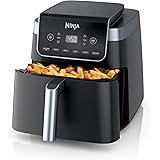
Credit: LanKS / Shutterstock.com
Despite the development of cash apps and other fintech tools, it’s still a good idea to have a checking account (or two). Sure, no one writes checks anymore (except for all the people who do), but having a checking account is often necessary to get paid by your job and to pay off your bills without having to jump through hoops (or pay unnecessary fees; being unbanked can be expensive). Life is just easier with a checking account, even if you rarely or never actually write a check.
If you decide to open a checking account, though, you’re faced with a challenge: What kind of checking account should you open? There are a variety of checking accounts available, each with features that will appeal to different groups of people. Banks usually don’t offer all of them, so your choice of bank might be influenced by the checking accounts they let you open, as well. And having the right kind of checking account can make a huge difference in your financial life. Here are the eleven main types of checking accounts you can open, and who should consider each one.
Traditional
A Traditional Checking account is your basic, no-frills checking account. It comes with a debit card, paper checks (that you typically have to buy, either through the bank or via a third-party), and regular statements. Sometimes these accounts pay interest and sometimes they don’t; if you’re not going to maintain a balance and just use it to pay bills while you save your money elsewhere, it won’t matter whether it pays interest or not.
Who Needs One: A Traditional Checking Account is the basic option of checking accounts, ideal for anyone who just needs to pay bills and deposit a paycheck somewhere.
Premium
A Premium Checking account is a Traditional Account with some bells and whistles added on. You typically need to maintain a relatively high minimum balance (typically at least $15,000). In exchange, you’ll get the sort of perks that only matter to people who can leave $15,000 sitting in an account without laying awake at night, including free checks and other services (like money orders or wire transfers), no fees on ATM transactions, and an included safe deposit box. These accounts almost always pay interest (and usually higher rates than Traditional accounts).
Who Needs One: People who will actually use their banking services on a regular basis, and who have spare cash they can let sit. If you use ATMs or write a lot of checks, the freebies and higher interest will benefit you.
Checkless
As you might guess, a Checkless Checking account is a checking account that doesn’t issue paper checks—you can only access your money via debit card or online transactions. They’re sometimes seen as a good way to avoid overdraft fees if you have a bad habit of writing checks and losing track of how much money you need in the account to cover them.
Who Needs One: If you never write checks, frequently lose track of the checks you’ve written, or just need an account to use for direct deposits, this might be a solid option.
Joint
A Joint Checking account is a checking account that is accessible by two or more people. While traditionally associated with married couples, you don’t have to be officially partnered with someone to open a joint account—you can open a joint account with an aging parent to help them pay bills, with your children so you can give them access to money but monitor their spending, or for any reason at all. The account can be any type (traditional, premium, etc.). Keep in mind that the joint account holder has full access to not just the money but the transaction record and statements as well—there are no secrets in a joint account.
Who Needs One: Anyone who needs to collaborate on paying bills or who needs to combine income streams with someone else, whether it’s a couple paying household bills or a fund set up for other reasons.
Business
As should be fairly obvious, Business Checking accounts are designed to be used by businesses. Many businesses will have several accounts for specific purposes—one for payroll, one for purchasing, etc. If you own a small business, keeping your accounts separate from your personal finances is a good idea, and business accounts usually come with extra features, like the ability to have multiple debit cards (for employees) and integration into payroll and accounting software. They also often come with higher fees (and more of them) than personal accounts.
Who Needs One: Anyone running a small business.
Multicurrency
Most U.S.-based checking accounts deal solely in dollars, for obvious reasons. But if you do business with people overseas, get paid in another currency, or maintain accounts in other countries a Multicurrency Checking account might make sense. These accounts allow you to hold amounts in different currencies in one account, making it a lot easier to move money around. You can usually set up “subaccounts” for each currency so you can write checks in those currencies. Typically, you have to already maintain a high balance at the bank or be a business account before you’ll have the option to open a Multicurrency Checking account.
Who Needs One: People who can maintain a high balance and who travel frequently or make frequent transactions in different currencies.
Student & teen
Typically restricted to students aged 18-23, Student Checking accounts come with low minimum balances and without a lot of fees. They usually also include overdraft forgiveness and often come with free budgeting tools like smartphone apps and other educational services to help young people learn how to manage their own money. You usually have to be actively enrolled in school to qualify.
Who Needs One: College students seeking to open their first bank accounts and learn the basics of personal money management.
Rewards
A Rewards Checking account works just like a Rewards Credit Card—you get something back when you use your debit card to make purchases, typically in the form of cash back. They also often have pretty high interest rates if you maintain a high balance or a specific schedule of deposits. Just keep in mind the security issues around using your debit card for purchases as opposed to a credit card.
Who Needs One: Anyone who uses their debit card a lot to make purchases and is comfortable with the security risks.
Lifeline
A Lifeline Checking account is an account with a low minimum balance (or no minimum balance), few (if any) fees, and very few requirements. They’re designed for low-income, unbanked people who can’t qualify for a more traditional account. They often come without some of the features found in most checking accounts (like actual paper checks), and there may be an income threshhold you have to meet in order to qualify for one.
Who Needs One: Anyone who can’t afford a traditional checking account.
“Second Chance”
Second Chance Checking accounts (sometimes called Opportunity checking accounts) are basic accounts offered to people who have poor banking records that prevent them from opening a traditional account—a history of overdrafts, bad checks, or other problems. Second Chance accounts are typically bare bones in terms of services, and usually come with mandatory maintenance fees and minimum balances, and typically do not include overdraft protection or other services. Not all banks offer them, but those that do usually have a pathway to upgrade the account to a regular checking account if you maintain it in good standing for a period of time.
Who Needs One: People who can’t open a traditional account due to past banking transgressions.
Senior
Senior Checking accounts are marketed to people over the age of 55 to 65 and offer perks like free checks or waived fees. They’re designed for people on a fixed income after retirement. It’s important to note that this is sometimes just a marketing term, as many checking accounts offer similar benefits, so it pays to compare the features offered against other accounts at your bank (or at competing banks).
Who Needs One: Retirees or anyone over the minimum age living on a fixed income who needs a checking account without a plethora of extra fees.
Note: This article have been indexed to our site. We do not claim legitimacy, ownership or copyright of any of the content above. To see the article at original source Click Here












